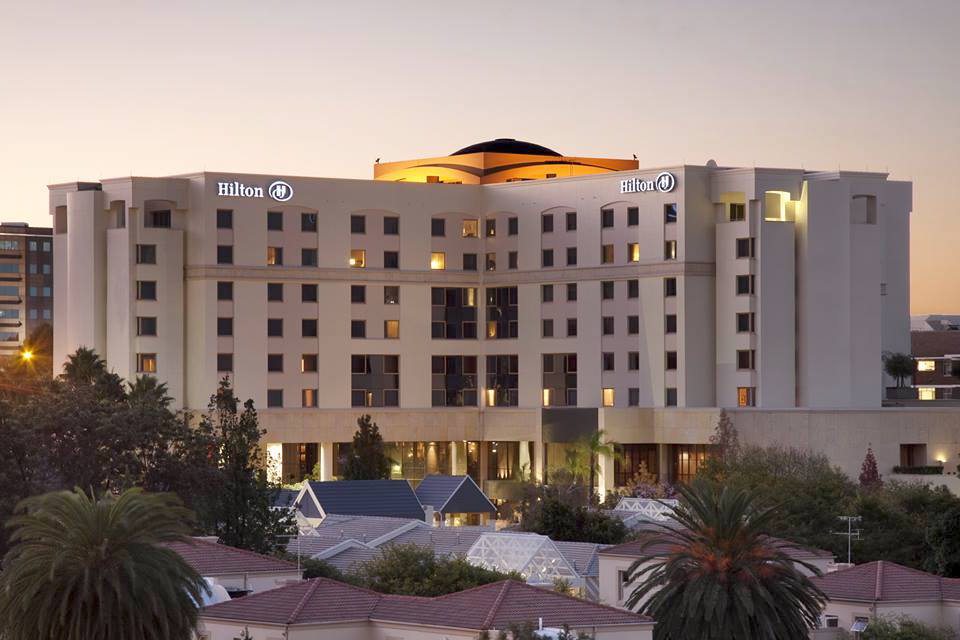Skift Take
From wild safari getaways to its vibrant colorful cities, Africa has more than enough to tempt the 200 million Chinese tourists forecast to be trotting the globe by 2020. But is enough being done to roll out the welcome mat? It depends where you look.
 Editor’s Note: Skift launched a new series, Gateway, to broaden our news coverage geographically with first-hand, original stories from correspondents embedded in cities around the world.
Editor’s Note: Skift launched a new series, Gateway, to broaden our news coverage geographically with first-hand, original stories from correspondents embedded in cities around the world.
We are featuring regular reports several times per week from Beijing, Singapore and Cape Town, and look for us to add other cities soon. Gateway Cape Town, for example, signifies that the reporter is writing from that city although his coverage of the business of travel will meander to other locales in the region. Read about the series here, and check out all the stories in the series here.
With more than 120 million travelers venturing abroad each year, the Chinese outbound market, which is expected to top 200 million people by the end of the decade, offers enormous potential for African countries looking to bolster their tourism industries.
The issue is, how to convince Chinese holidaymakers that the continent is safe, exciting and accessible?
On one hand, it might be an easy sell because as the maturing Chinese traveler looks for experiences beyond the shopping boulevards of Europe, “there’s a growing market for the safari products in East Africa and South Africa,” says Trevor J Ward, hospitality analyst at Lagos-based W Hospitality Group.
“Travellers from mainland China tend to be among the biggest, or fastest growing, feeder markets for our safari properties in Tanzania, Kenya and South Africa,” says Caroline Daniel, regional director of Africa for Preferred Hotels & Resorts. “Corporate travel from China continues to grow for sub-Saharan countries with tourism infrastructure.”
“The Chinese traveler is extremely important to our African properties. Over the past several years the South African market in particular has seen continuous growth in visits from Chinese tourists with further growth predicted,” says Jon Scofield, senior director of strategy and program management for Hilton Hotels. “China’s growing middle classes are more mobile than ever, with increasing disposable income and a rising interest in premium travel.”
But how to grab the attention of all those potential customers? With a few exceptions, national tourist boards have demonstrated neither the will nor the resources to actively market themselves to the nascent Chinese market.
“South African Tourism is the only real active participant in the Chinese market in terms of marketing,” says Michael Jones, co-founder of Beijing-based Create Consulting, which markets tourism and hospitality brands in China. “In the past Egypt and Kenya were major competitors, but the two have since faltered.”
Those two may have fallen by the wayside due to lingering security concerns, but here’s the rub: Aside from highlighting the charms of the country, road shows and marketing campaigns can also be used to allay the – often-unfounded – fears of the Chinese about travel to Africa.
London and Paris Were Closer
When an Ebola epidemic struck West Africa in 2014, safari lodges from Kenya to South Africa received cancellations from worried guests. This despite the fact both London and Paris were closer to the outbreak.
Perception is a powerful thing, which is why savvy tourism marketers are increasingly using Weibo and WeChat, social media channels that have particular currency amongst Chinese travelers.
Social media “remains an important marketing tool to influence customer behavior,” says Scofield from Hilton Hotels. “If a brand does not have a strong digital presence, Chinese travelers are more likely to search for another hotel which will meet their needs.”
A lack of direct flights is a further challenge in growing arrival figures, as is the need to relax often-onerous visa regimes. Some East African destinations offer visas-on-arrival, while last year South African authorities launched an Accredited Travel Company programme allowing tour companies to process visa applications on behalf of group travelers.
“This means Chinese group travelers to South Africa no longer need to make in-person applications at visa processing centers,” says Bradley Brouwer, president, Asia Pacific, for South African Tourism’s Beijing Office. Visa facilitation offices have also been expanded to include nine Chinese cities.
The change had an immediate effect. According to South African Tourism’s Strategic Research Unit, arrivals figures from China spiked sharply upwards in 2016, with an estimated 53 percent increase over the previous year.
With arrivals figures on the rise both tourism authorities and hotel groups are now working to lessen the culture shock for travelers.
South Africa Trains Hoteliers
In 2016, South Africa’s Tourism Ministry launched a public-private partnership to train staff from hotels showing a high proportion of Chinese guests. The trainees received tuition in Mandarin and Chinese cultural norms, followed by a three-week immersion and further training in China.
“Frontline staff who have gone through the training will be able to assist Mandarin speakers to make arrangements for travel, and to provide information about sights to visit, transport and restaurants,” says Nicholas Barenblatt, group marketing manager for the pan-African Protea Hotels by Marriott chain.
Hotel groups are also working to improve the Chinese guest experience, from offering congee on the breakfast buffet to providing kettles and jasmine tea in rooms.
Hilton’s ‘Huanying’ program, which offers dedicated Mandarin television channels and interpretation services, is offered at Conrad Cairo, Hilton Addis Ababa and Hilton Sandton, in Johannesburg. Selected Starwood hotels in Africa also provide Mandarin-speaking hotel staff.
Although much has been done to allay visa troubles and safety fears, Africa has a long way to go when competing against other destinations for the attention of the Chinese market.
“The Chinese are hungry for new destinations,” says Jones of Create Consulting. “Ultimately, money talks, and African destinations are not serious in committing marketing budgets to attract Chinese tourists.”
The Daily Newsletter
Our daily coverage of the global travel industry. Written by editors and analysts from across Skift’s brands.
Have a confidential tip for Skift? Get in touch
Tags: china outbound, south africa, tourism
Photo credit: The Hilton Sandton in South Africa is one of several properties that offer guests Chinese language TV channels and translation services. Hilton Sandton
